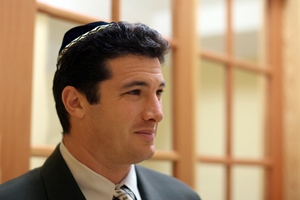
I grew up in Alberta, I live in British Columbia, and my work lets me think and write about a higher vision for Canada in the world. This secured my credentials as the voice of Western Canada a few elections ago, when Mark Kelley took Canadians from various parts of the country and transplanted them on the other side, in my case Quebec, for a segment on CBCs The National.
A week in Montreal interviewing Gilles Duceppe, Andre Boisclair, Justin Trudeau, veterans, and the creator of Les Bougon does not make me an expert on the complex society that is Quebec. Neither do the multi-week Quebec family vacations we've taken since, or my continued efforts to learn French, but they have all increased my curiosity. I love Quebec. I love the province, the people and the language. I'm aware of what Quebec has added to Canada, and how it has shaped our history. I admire Quebec's support of the arts, and progressive policies like subsidized daycare that allow women to pursue successful careers.
So I have been closely watching the Quebec provincial election that will be decided on Sept. 4.
The separatist Parti Quebecois is leading in the polls. Their most distinct policy, besides an eagerness to lead Quebec into another referendum, is a proposed secular charter that will banish all religious garments and symbolism from the provincial realm. No head coverings for Sikhs, Muslims or Jews, no religious objects at all except for the cross, described as "a part of Quebec's heritage." Secularism -- the separation of political and religious institutions -- is one of the principles of democracy. A secular charter would be welcome by many in North America. But this charter is not designed to separate religion, but to entrench it, as long as it’s the right one.
It is hard to predict which of these policies will do more to separate Quebec from the rest of Canada. The Canadian Charter of Rights and Freedoms guarantees freedom of religion, and it would be difficult to imagine this kind of discrimination in Alberta where the mayors of the two largest cities are Muslim and Jewish.
Divisive politics
How did Quebec get so far from a shared vision of Canada? How could religious expression become a bigger issue for Quebecois than the crumbling infrastructure that has made driving on the freeway a deadly proposition?
Just like everywhere else, the Quebecois have allowed politicians to use simple divisive gimmicks to distract us from the real problems at hand. Whenever I visit Quebec, I hold my breath crossing bridges and driving under freeway overpasses that are cracking and patched with various shades of concrete in what I imagine is an attempt to prevent chunks from falling and killing any more motorists. This is serious business for a province also facing the highest levels of debt and taxes in the country.
Yet Francophone Quebec would rather concern itself with excluding those who look different than immigrants who arrived 400 years ago. The irony is that Quebec's immigration policy has specifically courted immigrants from Africa and the Middle East because they speak French. You can't have it both ways.
French Canada has gone down this path before, and it didn't end well then either. Banned by the king of France from allowing anyone who wasn't both French and Catholic, the early settlements of New France struggled to survive. How many times do we have to learn that in diversity we are stronger?
It is likely that just like voters elsewhere, the Quebecois have allowed a single issue or sound bite to determine their vote, choosing to ignore the parts of a policy platform that make little sense. We do this in religion as well, conveniently picking the parts of the doctrine that match our world view and glossing over the more controversial ones we disagree with. The time may have come for all of us to pay careful attention to the whole. Our future as a nation depends on it. ![]()
Read more: Politics














Tyee Commenting Guidelines
Comments that violate guidelines risk being deleted, and violations may result in a temporary or permanent user ban. Maintain the spirit of good conversation to stay in the discussion.
*Please note The Tyee is not a forum for spreading misinformation about COVID-19, denying its existence or minimizing its risk to public health.
Do:
Do not: